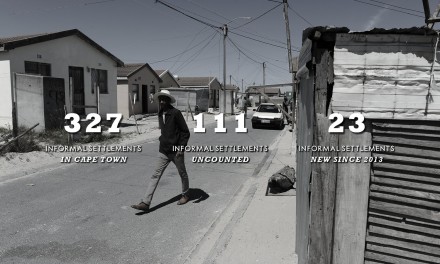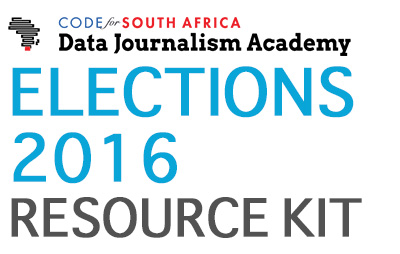“Fit and proper.” From the appointment to the head of the prosecuting authority, to the Public Protector, South Africa’s legislation is dotted with these words, when describing the kind of person charged with leading key institutions.
But court judgments and investigate reports are equally littered with these words, when describing why key appointees should not have got the job. The solution, experts say, is public oversight.
With Parliament about to start interviewing candidates to replace Public Protector Thuli Madonsela, whose seven year term ends in October, civil society groups are urging the public to actively ensure the process is transparent.
This is especially important because of a range of controversial appointments made across major public institutions in recent years, they say. Increasingly, campaigns to ensure public oversight over key appointments have to ensure transparency during the interviews of candidates.
A good example of this is the Judges Matter campaign which has pushed hard for the public to get involved in the Judicial Service Commission. And the Right 2 Know campaign has campaigned hard for transparency around the appointment of a new inspector-general of intelligence.
Parliament confirmed on Thursday that the process of appointing the new Public Protector would begin shortly, and requests for candidates should be submitted soon.
The Public Protector’s office has come under fierce attacks over several of its findings, particularly the investigation into upgrades at President Jacob Zuma’s Nkandla home.
Her reports have had serious repercussions for several political heavyweights, including deceased minister Sicelo Shiceka, former national police commissioner Bheki Cele, then-president of the ANCYL Julius Malema, and most recently, SABC Chief Operating Officer, Hlaudi Motsoeneng.
(See our interactive timeline of Madonsela’s top five cases here)
The Public Protector’s investigation found, among other things, that disciplinary action should be taken against Motsoeneng, for faking his matric qualification, and maladministration.
Motsoeneng simply ignored Madonsela’s report. The DA approached the courts, and it would not be the first time that the courts have affirmed Madonsela’s office’s powers.
The SCA held that Motsoeneng should be suspended pending an investigation into his fitness to hold office. Motsoeneng is still in his post, somewhat brazenly appearing on his own station’s programmes routinely.
Last year, the Public Protector’s office closed several regional offices due to budget cuts, amidst a plea to Parliament for more funding. In an interview with the Mail & Guardian, Madonsela said that when she approached Parliament for more funding, she was “treated like a child”.
This year, then-finance minister announced that her office would receive additional funding of R60-million.
But her office remains crippled, as she has frequently said publicly, and her investigators are bogged down by an unmanageable caseload. There are fears that her office is being squeezed, and that whoever replaces her need to push back against political pressure.
Lawson Naidoo from the Council for the Advancement of the South African Constitution says that while recommendations for position of Public Protector are made by Parliament, civil society has a critical role to play.
“Civil society needs to make every effort to ensure that there is public participation in the process so we get the public protector that we deserve,” he said.
Allison Tilley from the Open Democracy Advice Centre says that while a transparent interview process for the new Public Protector is essential, the application stage before the interviews is where public participation will be essential.
“We have to ensure that there is sufficient time given for candidates to apply, and to make sure the right people are applying. It’s about people who are not in government getting their act together and ensuring the right people apply. Otherwise the process can be transparent as all hell but it won’t matter if the wrong people apply.”
And there is an unspoken hope that Madonsela’s successor will not be like her controversial predecessor, Lawrence Mushwana, whose exit in 2009 was accompanied by a reported R7-million golden handshake.
Probably his most controversial decision was his findings vindicating the State and the ANC in the “Oilgate” scandal.
Mired in controversy
There have been a number of controversial appointments since Mushwana was replaced.
The appointment of Hawks head, Major General Berning Ntlemeza raised eyebrows because a court found that he had lied under oath. A court case is currently underway seeking to remove him from that position.
Naidoo flags the appointment of the National Director of Public Prosecutions (NDPP) as an appointment that was flawed because of its lack of transparency.
The National Prosecuting Authority (NPA) has had six heads in 10 years, and is currently led by Advocate Shaun Abrahams. Before him, the institution was mired in controversy over the NDPP post.
Advocate Nomgcobo Jiba acted in the position until Advocate Mxolisi Nxasana replaced her. The Supreme Court of appeal later found that Jiba had acted “dishonestly”, and Nxasana left under acrimonious circumstances.
While the appointment is made directly by the President, Naidoo says public scrutiny could have made some difference.
“That means letting us know what we are getting,” he says, adding that the NDPP appointments have been “ill-advised”.
In November 2014, Deputy Chief Justice Dikgang Moseneke delivered a speech at Unisa in which he raised concerns about how many appointments of key positions were ultimately up to the President.
He listed no less than 31 appointments which were ultimately made by the President, either after consultation with other bodies such as Parliament or on his own.
“Much of the glowing talk about our constitutional architecture relates to fundamental rights and freedoms. And yet the manner in which public power is allocated within it is not always optimal for advancing our democratic project. I suggest that in the next two decades we may have to revisit the dispersal of public power,” Moseneke said.
Tilley has spearheaded a campaign called Judges Matter, which aims to educate the public about the appointment of judges. Tilley says that previously, about three people would attend the Judicial Service Commission (JSC) hearings, where potential judges are interviewed.
While the impact of campaigning for more public involvement in this process is hard to measure, Tilley says, there has been a noticeable difference in the interest of the public in the process on social media, and more people now attend the JSC hearings.
“We know that people know more. We think it’s also had an impact on the questions asked in the process. Previously we say habitually asked questions like questions about “separation of powers” – which is essentially a nothing question. Now, we’ve seen some more interesting questions which start to talk about judicial approach. We’ve seen more politicians in the room as questions. Some politicians would not ask questions in the past.”
And the appointment of the Information Regulator has also seen much civil society activism. The Information Regulator, a new position which will ensure the enforcement of the Protection of Personal Information Act – legislation that protects personal and private information.
Candidates for the position have now been announced following an interview process. Tilley says there was a successful campaign by civil society to ensure the interviews were transparent.








